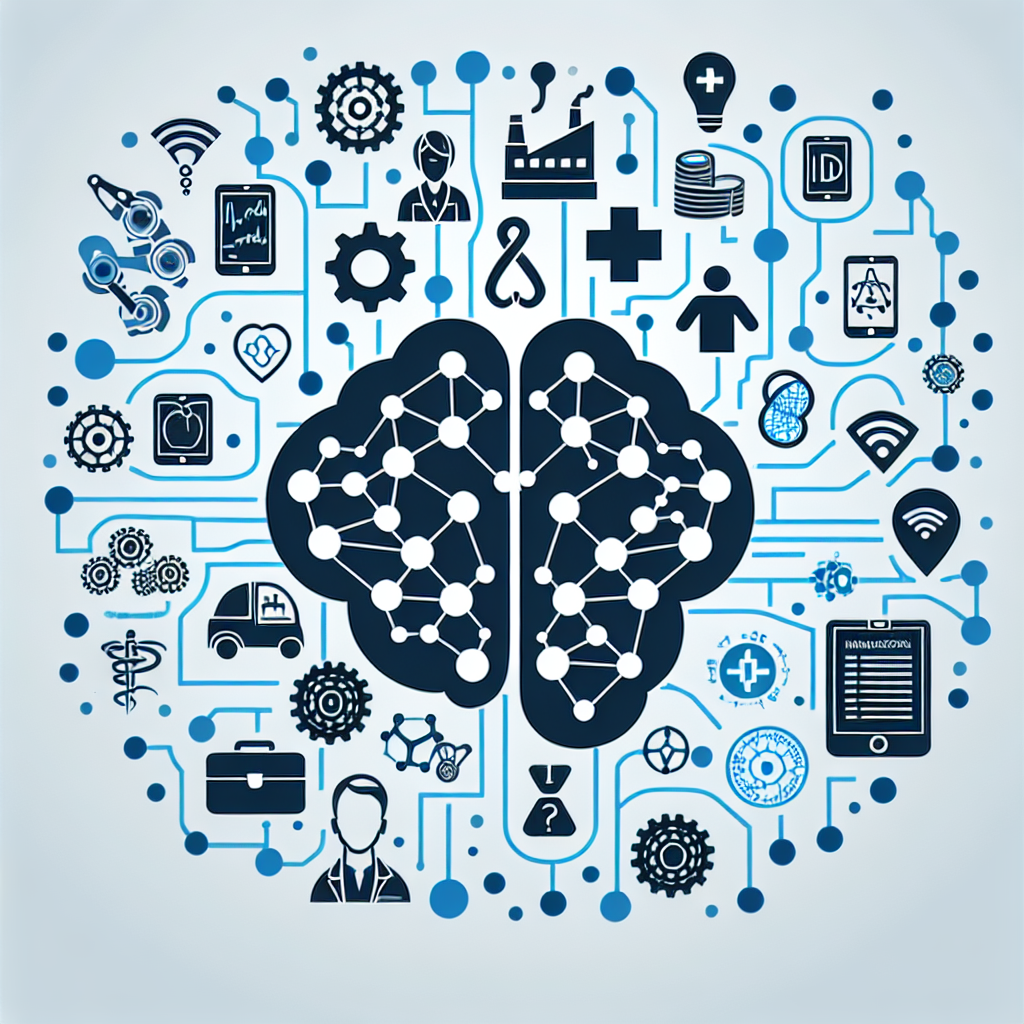Artificial General Intelligence (AGI) is a term that refers to the development of machine intelligence that is capable of performing any intellectual task that a human can. While current AI systems are specialized in specific tasks, AGI aims to create a system that can think, reason, and learn across a wide range of domains. The potential applications of AGI in various industries are vast, and could revolutionize the way we live and work.
In this article, we will explore some of the potential applications of AGI in different industries, and discuss the challenges and opportunities that come with the development of this technology.
Healthcare
One of the most promising applications of AGI in the healthcare industry is in the field of medical diagnosis. AGI systems could analyze vast amounts of patient data, medical records, and research papers to provide accurate and timely diagnoses. This could help doctors make better decisions and improve patient outcomes.
AGI could also be used to develop personalized treatment plans for patients based on their genetic makeup, lifestyle, and medical history. This could lead to more effective treatments and better patient care.
Another potential application of AGI in healthcare is in drug discovery. AGI systems could analyze massive amounts of chemical data and predict the effectiveness of new drugs, potentially speeding up the drug development process and reducing costs.
Finance
In the financial industry, AGI could be used to analyze market trends, predict stock prices, and make investment decisions. AGI systems could analyze vast amounts of financial data and news articles to identify patterns and trends that human traders might miss.
AGI could also be used to detect fraud and money laundering in real-time, potentially saving financial institutions billions of dollars in losses.
Retail
In the retail industry, AGI could be used to personalize the shopping experience for customers. AGI systems could analyze customer data and preferences to recommend products that are tailored to individual tastes and needs. This could lead to higher customer satisfaction and increased sales.
AGI could also be used to optimize supply chain management and inventory control. AGI systems could analyze demand forecasts, production schedules, and shipping routes to minimize costs and maximize efficiency.
Manufacturing
In the manufacturing industry, AGI could be used to improve quality control and prevent defects in products. AGI systems could analyze production data in real-time to identify potential issues before they become serious problems.
AGI could also be used to optimize production processes and improve efficiency. AGI systems could analyze data from sensors and machines to identify bottlenecks and inefficiencies, and suggest ways to improve productivity.
Transportation
In the transportation industry, AGI could be used to improve traffic management and reduce congestion. AGI systems could analyze real-time traffic data and adjust traffic signals and routing to optimize traffic flow.
AGI could also be used to improve autonomous vehicles and drones. AGI systems could analyze sensor data and make real-time decisions to navigate obstacles and avoid accidents.
Challenges and Opportunities
While the potential applications of AGI in various industries are vast, there are also significant challenges that need to be addressed. One of the biggest challenges is the ethical implications of AGI. As AGI becomes more intelligent and autonomous, there is a risk that it could make decisions that are harmful or unethical.
Another challenge is the potential impact of AGI on the job market. As AGI systems become more capable of performing tasks that were previously done by humans, there is a risk of widespread job displacement. It will be important for policymakers to address these challenges and ensure that the benefits of AGI are shared equitably.
Despite these challenges, there are also significant opportunities that come with the development of AGI. AGI has the potential to revolutionize the way we live and work, and could lead to significant advancements in healthcare, finance, retail, manufacturing, transportation, and many other industries.
FAQs
1. What is the difference between AGI and Artificial Narrow Intelligence (ANI)?
AGI refers to the development of machine intelligence that is capable of performing any intellectual task that a human can. ANI, on the other hand, refers to the development of machine intelligence that is specialized in specific tasks. While ANI systems are limited to specific tasks, AGI aims to create a system that can think, reason, and learn across a wide range of domains.
2. How far are we from achieving AGI?
Achieving AGI is a complex and challenging goal that will likely take many years to achieve. While significant progress has been made in the field of AI, there are still many technical challenges that need to be addressed before AGI becomes a reality.
3. What are some of the risks associated with AGI?
One of the biggest risks associated with AGI is the potential for misuse or unintended consequences. As AGI systems become more intelligent and autonomous, there is a risk that they could make decisions that are harmful or unethical. It will be important for researchers, policymakers, and industry leaders to address these risks and ensure that AGI is developed responsibly.
4. How can businesses prepare for the impact of AGI?
Businesses can prepare for the impact of AGI by investing in research and development, and by staying informed about the latest developments in the field of AI. It will also be important for businesses to adapt to the changes that AGI will bring, and to develop strategies for leveraging the potential benefits of this technology.
In conclusion, the potential applications of AGI in various industries are vast, and could revolutionize the way we live and work. While there are significant challenges that need to be addressed, there are also significant opportunities that come with the development of this technology. It will be important for researchers, policymakers, and industry leaders to work together to ensure that AGI is developed responsibly and ethically.

